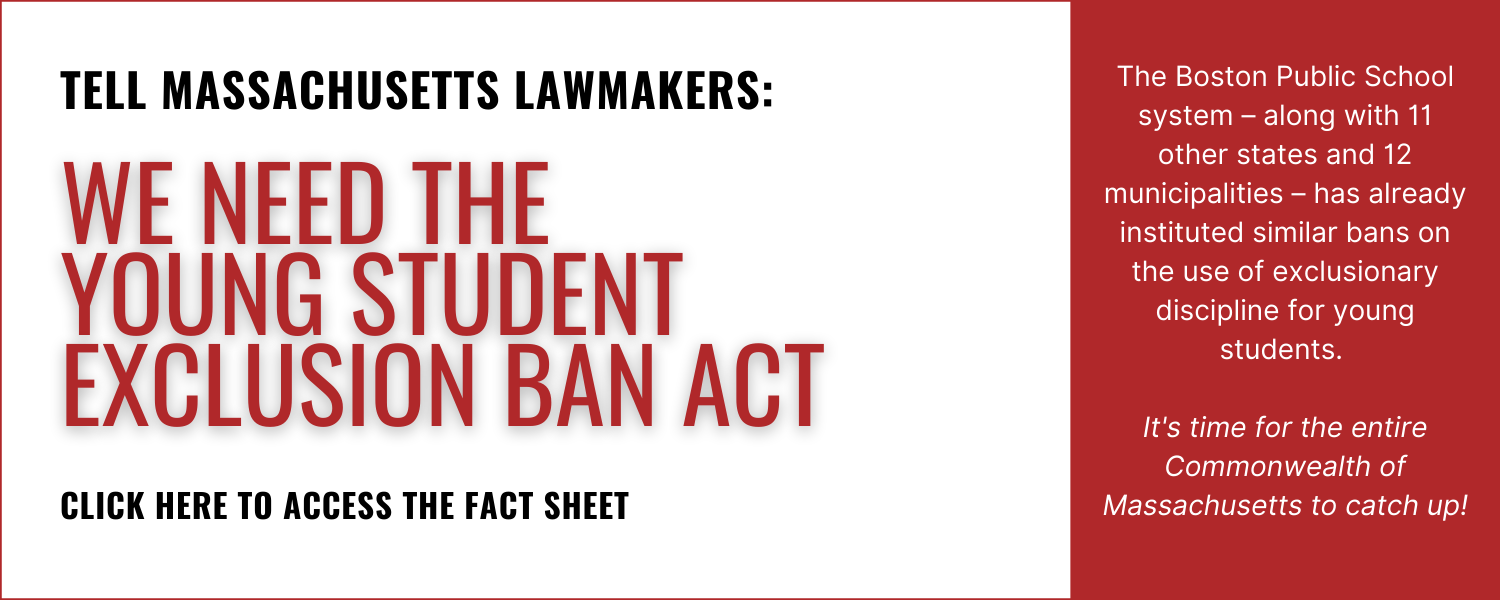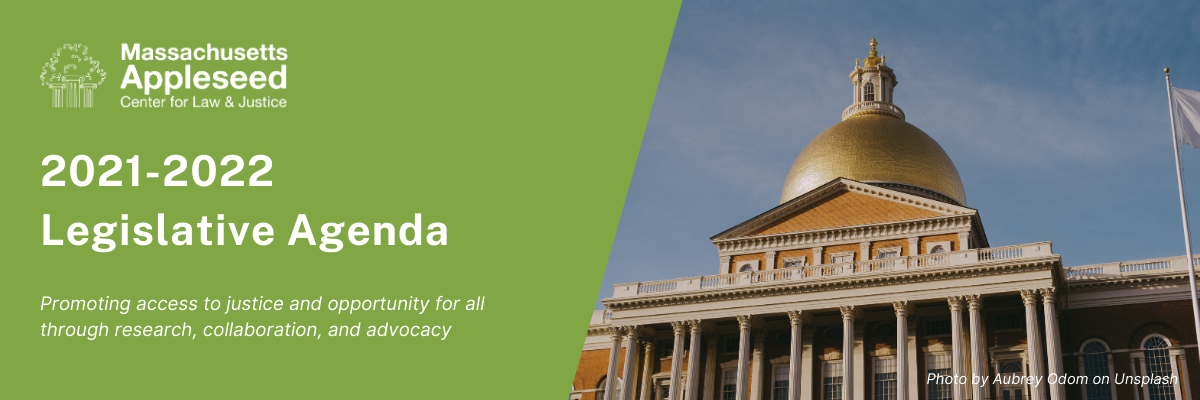Advocacy Organizations Urge Biden Administration to Ramp Up Enforcement of Federal Civil Rights Laws in Schools Across the United States
WASHINGTON – Four member organizations of Appleseed, a network of justice centers, submitted public comments to the United States Department of Education on Thursday, July 22, concerning the national state of school discipline. By focusing on four questions posed by the Department of Education to the public, Texas Appleseed, Massachusetts Appleseed Center for Law & Justice, South Carolina Appleseed Legal Justice Center, and Kansas Appleseed illustrate how school policing, gang databases, discriminatory dress codes, and classroom removals hinder millions of young people from achieving their full potential in classrooms across America.
“To remedy racial discrimination in the administration of school discipline, it necessitates more than data collection and analysis; more than investigating disproportionate representation of students of color in exclusionary discipline and law enforcement referrals; more than implementing intervention-focused discipline strategies to avoid perpetuating the school-to-prison pipeline,” said Dr. Vicky Luna Sullivan, Esq, a senior staff attorney for the Education Justice Project at Texas Appleseed.
“It demands confronting the root causes of the discriminatory administration of the student discipline, attacking the systemic racial discrimination that occurs by implicit bias and deficit thinking in our schools, and valiantly activating a fundamental transformation that is free of racial discrimination,” she continued.
The public comments examine the detrimental impact of the “hardening” of schools, namely through increasing budget allocations to policing, security, and surveillance. The Centers also uplift some of the approaches highlighted in the 2014 Dear Colleague Letter, which clarified that a school district’s federal funding is contingent upon the non-discriminatory administration of school discipline. These methods of engagement include, but are not limited to, positive behavioral strategies, restorative justice, and multi-tiered systems of support.
“The Biden Administration should use all available tools to address the rampant misuse of exclusionary discipline and school policing in our nation’s schools,” said Mike Fonkert, the director of the Just Campaign for Kansas Appleseed. “For instance, memos of understanding can be very helpful tools to clarify that school police officers should not be involved in routine discipline. By creating a robust model framework that can be consistently applied across the nation, the Office for Civil Rights would make progress on ending the school-to-prison pipeline, which systematically harms Black and Brown students in Kansas at higher rates than White students.”
“We’ve seen horrendous cases occur, when local and state investments in school policing go unchecked, including sexual abuse of young people at the hands of school police officers on their school campuses. We need to make sure children can feel safe in their own schools,” said Jennifer Rainville, the education policy attorney for the South Carolina Appleseed Legal Justice Center.
The public comments also emphasize that inadequate data collection stands as a grave hindrance to education justice campaigns across the United States.
“If we’re going to push for policy change that repairs the harms of racial discrimination and the school-to-prison pipeline, especially those that impact girls of color, we need local education agencies and state education agencies to vigorously collect and report this data,” said Deborah Silva, Executive Director of Massachusetts Appleseed Center for Law and Justice.
The comments conclude with a call for the Biden Administration to fully reinstate and strengthen the 2014 Dear Colleague Letter. Drastic action is needed to mitigate the ongoing detrimental impact of the coronavirus pandemic, and the U.S. Department of Education could use several tools at its disposal to deliver long overdue equal educational opportunities to children across the nation.
“We are proud to stand with these Appleseed Centers as they continually fight to dismantle the school-to-prison pipeline in their states and across the country,” said Benet Magnuson, the executive director of the Appleseed Network.
“These comments illustrate some key points for the Biden Administration to consider as the executive branch of the federal government maximizes its effort to end the pushout of so many children in the United States,” he concluded.
###
About Appleseed Network
Appleseed is a network of 16 justice centers across the United States and Mexico working together to reduce poverty, combat discrimination, and advance the rule of law. Appleseed Centers unite research, organizing, policy advocacy, and impact litigation to build systemic solutions for their communities’ most pressing problems.
About Kansas Appleseed
Kansas Appleseed is a statewide advocacy organization dedicated to the belief that Kansans, working together, can build a more thriving, inclusive, and just Kansas.
About Massachusetts Appleseed Center for Law & Justice
Massachusetts Appleseed’s mission is to promote equal rights and opportunities for Massachusetts residents by developing and advocating for systemic solutions to social justice issues.
About South Carolina Appleseed Legal Justice Center
The South Carolina Appleseed Legal Justice Center fights for low income South Carolinians to overcome social, economic, and legal injustice.
About Texas Appleseed
Texas Appleseed is a public interest justice center that works to change unjust laws and policies that prevent Texans from realizing their full potential. Our nonprofit conducts data-driven research that uncovers inequity in laws and policies and identifies solutions for lasting, concrete change.
Media Contacts:
Sarah Pacilio
Appleseed Network
spacilio@appleseednetwork.org
Angelica Maldonado
Texas Appleseed
amaldonado@texasappleseed.net
Melanie Rush
Massachusetts Appleseed Center for Law & Justice
melanie@massappleseed.org
Christina Ostmeyer
Kansas Appleseed
costmeyer@kansasappleseed.org
Brandon Fountain
South Carolina Appleseed Legal Justice Center
bfountain@scjustice.org
Want to stay informed on the latest issues Massachusetts Appleseed is working on?
Sign up for our mailing list.



